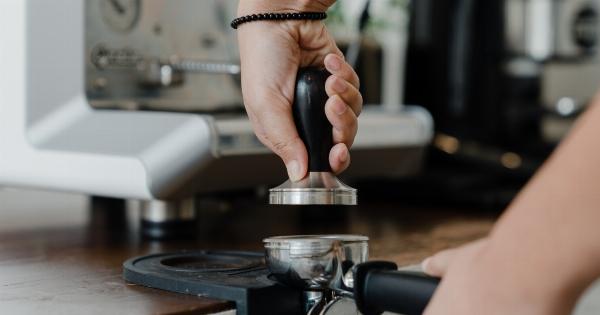Many people rely on caffeine to kick-start their day or help them power through long hours of work. Whether it’s in the form of a cup of coffee, a can of soda, or an energy drink, caffeine has become an integral part of our daily routines.
However, there may come a time when you decide to cut back or eliminate caffeine from your diet. While the decision to reduce caffeine intake can be a personal one, it’s important to be aware of the effects it may have on your mind and body. In this article, we will explore eight things you can expect when you cut caffeine from your life.
1. Withdrawal Symptoms
One of the first things you may experience when you cut caffeine is withdrawal symptoms. These symptoms can include headaches, fatigue, irritability, difficulty concentrating, and even flu-like symptoms.
This is because caffeine is a stimulant that affects the central nervous system and can lead to dependence. When you abruptly stop consuming caffeine, your body may take some time to adjust and may react with these withdrawal symptoms.
2. Improved Sleep
Caffeine is a known sleep disruptor. If you have trouble falling asleep or suffer from insomnia, cutting caffeine from your diet may lead to improved sleep quality.
Caffeine can stay in your system for several hours, so even consuming it earlier in the day can affect your sleep. By avoiding caffeine, you allow your body to wind down naturally and promote healthier sleep patterns.
3. Increased Energy Levels
It may sound counterintuitive, but cutting caffeine can actually boost your energy levels. While caffeine provides a temporary energy boost by stimulating the release of adrenaline, it can also lead to crashes and energy slumps.
Without caffeine, your body learns to rely on its natural energy sources, such as restful sleep, proper nutrition, and regular exercise, to fuel your daily activities.
4. Balanced Hormones
Caffeine consumption can affect hormone levels in your body. It can lead to an increase in stress hormones like cortisol and adrenaline, which can have negative effects on your overall health.
By cutting caffeine, you give your body a chance to balance its hormone levels naturally. This can result in improved mood, reduced anxiety, and a more stable hormonal profile.
5. Reduced Digestive Issues
Caffeine acts as a stimulant to your gastrointestinal tract, which can lead to digestive issues like acid reflux, heartburn, and an increased risk of developing ulcers.
Additionally, caffeine can have a diuretic effect, causing increased urine production and potentially leading to dehydration. By eliminating caffeine, you may experience a reduction in these digestive issues and improved overall gut health.
6. Better Hydration
As mentioned earlier, caffeine has a diuretic effect on your body, which means it increases urine production and can lead to dehydration if not properly compensated.
By cutting caffeine, you eliminate this diuretic effect and give your body a chance to maintain better hydration levels. Drinking adequate amounts of water without the interference of caffeine can have a positive impact on your overall health and well-being.
7. Reduced Dependence
Caffeine is a highly addictive substance, and regular consumption can lead to dependence. Cutting caffeine from your diet can help you break free from this addiction and reduce your reliance on a substance to function properly.
Over time, your body becomes less dependent on caffeine for energy and alertness, allowing you to feel more in control of your own body and mind.
8. Enhanced Mood and Mental Clarity
Caffeine can have both positive and negative effects on your mood and mental clarity. While it can temporarily improve focus and concentration, it can also cause jitters, anxiety, and irritability.
By cutting caffeine, you may experience improved mental clarity, reduced anxiety levels, and an enhanced sense of calmness and well-being.





























